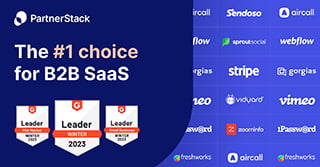Marketing
Marketing To Your Customers In A Downturn

Are you wondering how your business can keep marketing during an economic downturn?
Undoubtedly, the economic downturn has brought unforeseen challenges to businesses, particularly smaller organizations, and startups. Marketers face their biggest challenge in a recession – how to keep their marketing efforts effective without spending too much.
In this guide, we’ll explore best practices for marketing in a downturn, with tips on setting budgets, utilizing digital marketing strategies, and maintaining customer relationships.
Navigating tough economic times is hard for businesses, but it doesn’t have to mean sacrificing your marketing efforts. Read our business blog post on how to market effectively during a down economy. Topics include:
- How to adjust your marketing goals and measurement metrics
- Cutting costs and refocusing spending
- Using technology for improved efficiency and results
- Concentrating on customer retention
- Using targeted digital marketing channels
Adjust Your Goals And Measurement Metrics
During the downturn, adjusting your marketing goals and KPIs to reflect the reduced budget and changes in customer buying patterns is essential.
Before you get started, consider your mindset. Are you mentally prepared for the paradigm shift? If you are still clinging to the highs reached from your more significant marketing budget, you will need to reset your expectations so you can entirely focus on the new challenges ahead.
Start over with research on your target audience, so your revised marketing campaigns achieve a high conversion rate. Understanding how your audience priorities have changed will ensure you set relevant goals for your marketing campaigns.
When setting goals, consider what you can realistically achieve with limited resources. You will need to try new strategies, so your marketing budget goes further.
Cut Costs And Refocus Spending
Reduce non-essential expenses and refocus your spending priorities to maximize the impact of your budget.
Identify which marketing activities are most likely to generate a return on investment and focus your efforts there while reducing campaigns that are not delivering results. Review contracts with vendors and renegotiate terms where possible to lower costs.
Plus, shift media buying strategies towards more cost-effective digital, online search, or social media channels.
Lastly, review your measurement metrics to ensure they accurately track performance against these lower standards.
Focus On Targeted Digital Marketing Channels
Digital marketing can be an effective and cost-efficient way to reach customers in a down economy. It is highly targeted to reach specific audience segments. Platforms such as social media, email marketing, and search engine optimization (SEO) are relatively low-cost and can drive substantial results.
Effectively targeting the right audiences for your digital campaigns is critical for successful marketing during tough times. Ongoing analysis to improve your knowledge of customer preferences can include the analytics found on platforms like Facebook, Google, YouTube, and any other social network where your business has a presence.
Furthermore, data analytics to track your sales and website visitors can help inform profitable strategies. This data can guide ad-targeting decisions and strategies to grow existing customer relationships.
Consider also emerging opportunities such as increased digital engagement.
One such strategy is content marketing on your website. When done well, the content will pull more visitor traffic and help your site achieve a higher CRO.
Content marketing
Content marketing strategies, such as blog posts, videos, infographics, and other educational and informative content, can help establish your business as an industry leader and attract customers. For your blog content, focus on the structure, including optimizing for snippets, so search engines love it.
While creating content may seem cost-effective, doing it well does take up a lot of time. You can use AI writers, but we recommend using them for less than 20% of the article. Take your time with every content on your site, so it’s shareable and pulls visitors to it.
Use Technology For Immediately Results
In today’s digital age, you can use technology to help identify and target new customers in a cost-effective manner.
Utilizing tools and marketing platforms for marketing automation and search engine optimization can be cost-effective and yield better results than attempting to do every task manually. For example, many automation platforms do light work of capturing customer data. For analyzing SEO opportunities, BusinessBlogs uses Neil Patel’s UberSuggest.
Concentrate On Customer Retention
Keeping existing customers is often just as important, if not more so, than acquiring new customers. During a down economy, focus on customer loyalty and retention to ensure that your marketing dollars are directed wisely.
Experiment with high-reward marketing strategies, including:
- Reward programs or customer referral systems
- Voucher marketing
- Loyalty discounts
- VIP upgrades
- Early access invitations
Marketers know change is inevitable, and to keep customers engaged and happy, there is some trial and error with customer retention initiatives.
Word-of-mouth marketing
Encourage satisfied customers to spread the word about your business to their friends and family. Word of mouth is one of the most effective forms of marketing and can be highly cost-effective.
Summing Up
All organizations need marketers who can embrace change and adapt their marketing strategies to survive a recession. However, you don’t have to resort to drastic cost-cutting measures in a downturn economy!
We have covered a few examples of cost-effective marketing strategies businesses can adopt during an economic downturn. The key is to be creative, think outside the box, and focus on delivering value to your customers.









